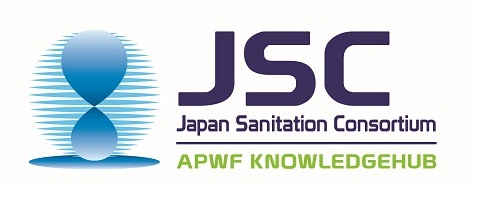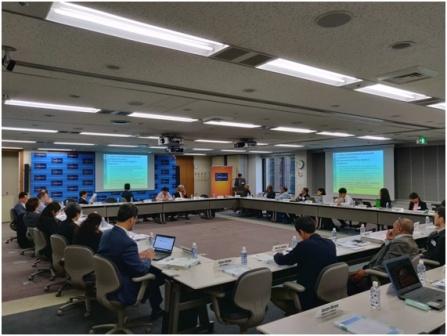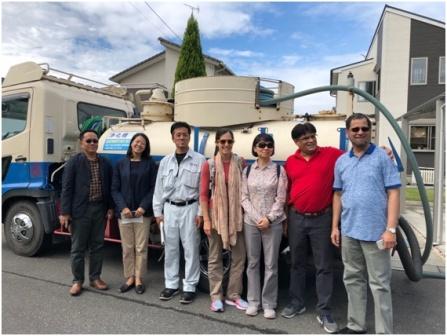
► NEWS & EVENTS
ADBI hosts the Development Partner Roundtable and Policy Dialogue Session on Sustainable Sanitation in Asia
In partnership with the Bill & Melinda Gates Foundation (BMGF), the Asian Development Bank Institute (ADBI) hosted the Development Partner Roundtable and Policy Dialogue Session on Sustainable Sanitation in Asia on September 20-22, 2018, in order to discuss innovative ideas on accelerating the progress on safely managed citywide sanitation, which includes sanitation and fecal sludge management in Asian countries (information on this event here).
More than 40 participants attended: 25 officials from various development organizations such as BMGF, ADBI, the Asian Development Bank (ADB), the World Bank (WB), the Japan International Cooperation Agency (JICA), the International Finance Corporation, the European Bank for Reconstruction and Development, the Islamic Development Bank, Water Aid, the Japan Sanitation Consortium (JSC), and 9 government officials from Bhutan, Cambodia, Nepal, Sri Lanka, Malaysia, Myanmar, Timor-Leste, India and Tajikistan.

JSC participated in both the Roundtable and Policy Dialogue, contributed to the Policy Dialogue by making a presentation on ‘Institutional Mechanisms for Sustainable Sanitation: Lessons from Japan for other Asian countries’. JSC also collaborated with ADBI to arrange the field visit showing the maintenance and desludging work of a small sized and a middle sized Packaged Aerated Wastewater Treatment Plant (PAWTP; Johkasou in Japan) conducted by a Japanese private O&M and desludging vendor operating in Saitama Prefecture. Almost all the participants of the Roundtable and Policy Dialogue joined this field visit.

As the outcome, the ‘Tokyo Statement on Way forward on accelerating Sanitation for all NOW (SDG6.2)’ was issued and a Policy Brief titled ‘Institutional Mechanisms for Sustainable Sanitation: Learning from Successful Case Studies’ was published by ADBI on December 6, 2018, based on the discussions during the event. This publication draws out lessons and recommendations for institutional arrangements and sustainable sanitation.
Publication: Institutional Mechanisms for Sustainable Sanitation: Learning from Successful Case Studies